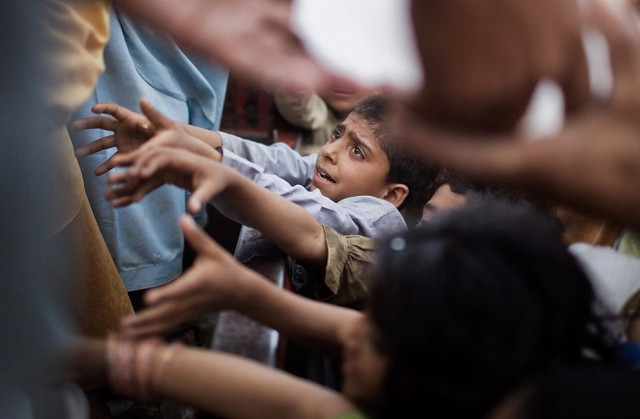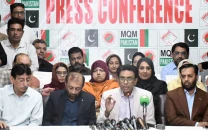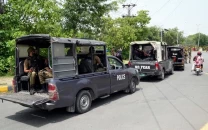Lopsided development: Rising inequality a major poverty reduction challenge in Pakistan
Progressive tax regime essential to mobilise resources for universal education, health services.

Progressive tax regime essential to mobilise resources for universal education, health services. PHOTO: REUTERS
Economic experts and civil society representatives have expressed concern over rising inequality in the country.
Pakistan faces multi-dimensional inequalities, they said while discussing “Rising inequality as a major development challenge” at a local hotel on Wednesday, said a press release.
They maintained that the energy crisis, economic growth, security and terrorism-related challenges have occupied available public spaces disproportionately and inequality regretfully is at the margins of public debate.
The discussion was organised by the Sustainable Development Policy Institute (SDPI) in collaboration with Oxfam.
There is concern that rising income and wealth inequalities have social and economic costs and its link to violence, political instability and social fragmentation cannot be ruled out. Rising disparities especially in power and income are frustrating efforts to reduce poverty, they argued.

Indirect taxation and public spending priorities favour the rich. This vicious cycle of power generating wealth and wealth bolstering power is a key structural development problem which needs immediate attention for the creation of a fair society, the participants discussed.
When it comes to income inequality, the richest 20 per cent take home nearly 45 per cent of monthly income, while the bottom 20 per cent take home just 8 per cent. This income gap is even wider in urban areas, where the top 20 per cent take home 61 per cent of income in comparison to 3.45 per cent by the bottom 20 per cent of the population, said the press release.
Oxfam Global Policy and Campaign Director Ben Phillips said, “Rising inequality is a global challenge. Across the world the public is calling for action to tackle extreme inequality. Those with the most to spare should contribute the most in taxes.”
Oxfam Country Director Arif Jabbar Khan said, “We need to look at the increasing gap between the haves and have-nots,” adding that multiple inequalities are holding back the efforts to eliminate poverty and bring peace in the country.
Published in The Express Tribune, June 20th, 2014.



















COMMENTS
Comments are moderated and generally will be posted if they are on-topic and not abusive.
For more information, please see our Comments FAQ